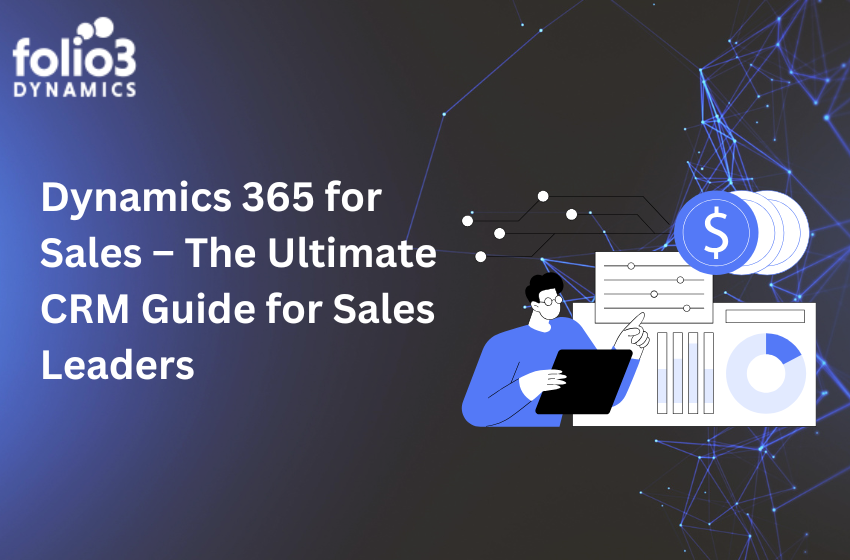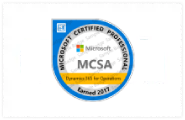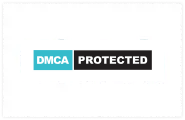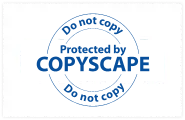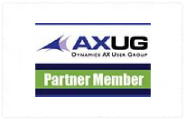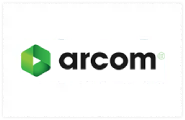Introduction:
Looking for a business software solution? Too many solutions and difficult to choose where to start from? You needn’t worry because, in this article, we’re comparing NetSuite vs Microsoft Dynamics 365 for your business solution.
Both NetSuite and Microsoft Dynamics 365 are the big hitters in the market regarding business solutions. They have great value in the market and command a significant market share.
Both also share quite some similarities as they target small to growing companies as their audience, offering them Customer Relationship Management (CRM), Enterprise Resource Planning (ERP), and e-commerce solutions.
These systems are regarded as game changers and most often the best solution makers. They stand face to face with each other, and with their outstanding features, create a dilemma in the choice among many business software solutions.
So, to decide between the two, we have created a NetSuite vs Microsoft Dynamics 365 situation where we will compare the Customer Relationship Management (CRM) and the Enterprise Resource Planning (ERP) software that both of them provide and all the features that they include.
With no further ado, let’s dive straight into the article.
NetSuite ERP
NetSuite ERP targets growing companies and automates office processes. They include:
- Inventory management
- Order management
- Revenue management
- Financial management
- Fixed assets
- Billing
Microsoft Dynamics 365 ERP
Microsoft Dynamics 365 ERP basically uses its conventional Microsoft Productivity apps, such as MS Office, MS SharePoint, and SQL databases to help businesses and enterprises efficiently manage their finances. It offers a cloud-based system through third-party partners but also gives you the option to implement an on-premises system.
NetSuite ERP: Pricing
NetSuite does not publicly disclose and list its pricing. They directly contact and negotiate with businesses who are interested in using NetSuite ERP about the pricing. This way, NetSuite provides a customized offer or subscription to suit the business’ needs and requirements.
Ultimately, the price depends on some factors. These factors include the number of users, the types of users, implementation of the solution, and the level of customization needed to form the plan.
Microsoft Dynamics 365 ERP: Pricing
Microsoft Dynamics 365, on the other hand, has more straightforward pricing than NetSuite. It provides predetermined plans to its customers to choose from according to their individual needs.
They basically offer three plans:
- Microsoft Dynamics 365 Plan
- Unified Operations Plan
- Microsoft Dynamics 365 for Retail
For a full user of Microsoft Dynamics 365 Plan, the price is $210 per month/per user. There are also prices for additional users in this plan.
For team members, the price is $8 per user/per month. For any operations activity, the price is $50 per month/per user. For operation devices, the price is $75 per device/per user.
The Microsoft Dynamics 365 Plan includes the features of Finance and Operations, Talent, Retail, Sales, Customer Service, Field Service, Social Engagement, PowerApps, and many more.
In the Unified Operations Plan, the price for a full user is $190 per month/per user. There are options for additional users in this plan as well.
For Team Members, the price is $8 per user/per month. For any operations activity, the price is $50 per month/per user. For operation devices, the price is $75 per device/per user.
This plan also has quite some features, including Finance and Operations, Retail, and PowerApps.
In the Microsoft Dynamics 365 plan for Retail, the price for a full user is $175 per user/per month. For Team Members in the Additional Users option, the price is $8 per user/per month. The feature in this plan includes, of course, Retain only.
NetSuite ERP: Features
NetSuite ERP delivers seven modules. They include:
- Order Management
- Financial Management
- Supply Chain Management
- Production Management
- Warehouse and Fulfillment
- Procurement
- Human Capital Management
Order Management basically deals with all the pricing of the services or products that the business is providing. It also manages all the orders that are placed by customers and the sales by the business.
Financial Management, as the name would suggest, deals with all the financial aspects of the business. The features of this module make managing finances easy. All the budgets and assets are managed here.
Production Management has features that manage all the productions of the business. The module includes business products and services management. This module also has the Manufacturing Execution System, which plans the manufacturing of a product and executes the manufacturing. Additional features also include Quality Assurance and Order Management.
Supply Chain Management has features that manage the flow of the business’s products and services. The features, for example, Landed Cost, Planning and Execution, plan the process to transform the raw materials into final products or service.
The Warehouse and Fulfillment module include features that manage all the inventories, warehouses, and retailers.
The Procurement module deals with all the purchases that the business enterprise makes. Its key features include Sourcing and Purchase Management.
Lastly, Human Capital Management (HCM) manages all the capital of the business. Its features include Employee Hiring Management that basically does the job of hiring employees and job positioning.
| Module | Features |
|
Financial Management |
Financial and AccountingFinancial Reporting
Electronic Bank Management Refund Checks Fixed Assets Budgeting |
| Production Management | Product Data ManagementWork Order Management
Quality Assurance Manufacturing Execution System |
|
Supply Chain Management |
Production ManagementOrder Management
Landed Cost Planning Execution Support Invoicing |
| Order Management | Pricing and Promotion ManagementPayroll Direct Deposit
Payroll Connect Sales and Order Management |
| Warehouse and Fulfillment | Inventory ManagementWarehouse Management |
| Procurement | SourcingPurchasing
Order Management |
| Human Capital Management | HR Functions and AnalyticsEmployee Hiring Management |
Microsoft Dynamics 365 ERP: Features
Microsoft Dynamics 365 ERP has split its functionality and features into three modules, which are interconnected apps. Most of the significant features are found in the largest app Microsoft Dynamics 365 for Finance and Operations. Currently, the three apps/modules include:
- Microsoft Dynamics 365 for Finance and Operations
- Microsoft Dynamics 365 for Retail
- Microsoft Dynamics 365 for Talent
The Microsoft Dynamics 365 for Finance and Operations basically include features that deal with financial management. This covers all the financial aspects of your business, for example, accounting, tax management, and budgeting. This way you will have efficient management for all the finances.
In addition to that, it also includes features that deal with the operations occurring in the business. This covers all the activities regarding the business operations and productions. Features include time and expense management and project estimation.
Features in the Microsoft Dynamics 365 for Finance and Operations:
- Accounting
- Financial Management
- Supply Chain Management
- Budgeting
- Planning
- Taxation Management
- Project Estimation
- Project Management
The Microsoft Dynamics 365 for Retail includes features related to marketing and customer services. It manages your physical marketing as well as digital marketing.
Features in the Microsoft Dynamics 365 for Retail:
- Marketing
- Digital Marketing
- Inventory Management
- Retailers Management
- Multiple-Channel Buying
- Tailored Service
- Tailored Sales
- Merchandising
- Unified Commerce
The Microsoft Dynamics 365 for Talent deals with expertise and the performance of your business. Features in the Microsoft Dynamics 365 for Talent include:
- Talent Acquisition
- Performance Management
- Development Management
- Human Capital Management
- Candidate Portals
NetSuite ERP Pros
- All of its apps and modules have a very user-friendly interface that makes using it pretty easy.
- Its menu bars and forms are easily customizable so that you can set it up according to your comforts.
- This solution offers you the opportunity to work in multiple languages.
- It has a very flexible operating system and is compatible with Windows, Android, iPhone/iPad, and Mac.
- It is powerful and has a lot of features to help you in your business enterprise.
- It is regarded as one of the world’s best financial management solutions and ERP, if not the best.
Microsoft Dynamics 365 Pros
- It has a powerful system that allows you to track all the information and data of the enterprise.
- All the reports regarding the enterprise, for example, budget reports and expense reports, can be set up monthly, weekly or yearly. This allows a smooth tracking of your business’ performance.
- It works with Microsoft’s productivity tools, such as MS Office, SQL databases, Outlook, and Microsoft SharePoint.
- The system is infused with artificial intelligence and a virtual assistant.
NetSuite ERP Cons
- Some users have reported difficulties in retrieving information that they needed.
- It can become difficult to navigate options because to a somewhat outdated interface.
- It does not get updated frequently.
Microsoft Dynamics 365 Cons
- Its plans can become very costly.
- Due to its huge databases, it can lag sometimes.
- It is difficult to customize its interface to suit your needs.
NetSuite CRM
The NetSuite Customer Relationship Management (CRM) was released in 2005 and is another powerful solution from NetSuite that provides the enterprise with a full view of their customers and audience in real-time. It drives the complete customer lifecycle and provides enterprises with more than just the conventional features offered by most CRM systems in the market.
NetSuite CRM is made up of four modules:
- Partner Relationship Management
- Marketing Automation
- Customer Service Management
- Sales Automation
Microsoft Dynamics 365 CRM
Like NetSuite, Microsoft Dynamics 365 CRM also has its CRM features and functions categorized into different apps. This gives flexibility to users to choose the app that they think their enterprise needs. You can use each app individually or can combine them to use as a whole.
Microsoft Dynamics 365 CRM is made up of three main apps:
- Microsoft Dynamics 365 for Sales
- Microsoft Dynamics 365 Customer Service
- Microsoft Dynamics 365 for Retail
Microsoft Dynamics 365 CRM also offers additional apps which include:
- Project Service Automation–A project-based business management app for planning resources and automation.
- Field Service–An app for managing and hiring employees in the field.
- Microsoft Social Engagement–An app for social media management. (It is included with both Microsoft Dynamics 365 CRM for Sales and Customer Service with no additional charges)
- Microsoft Relationship Sales–An app for sales navigation integrated with LinkedIn data.
NetSuite CRM: Pricing
Like NetSuite ERP, NetSuite CRM requires businesses and enterprises to contact them directly for any contracts. After contacting, NetSuite CRM and the interested enterprise decide the pricing to suit the enterprise’s needs. Again, the number of monthly users, add-ons, and modules that you need are what determine the price.
Microsoft Dynamics 365 CRM: Pricing
Microsoft Dynamics 365 CRM modules are available as apps in predetermined plans. They include:
- Microsoft Dynamics 365 Plan
- Microsoft Dynamics 365 Customer Engagement Plan
The Dynamics 365 Plan has the pricing of $210 per month/per user for a full user. There are also prices for additional users. For team members, the price is $8 per month/per user. For operations activity, the price is $50 per month/per user. For operation devices, the price is $75 per month/per user.
The modules included in this plan are:
- Finance
- Operations
- Retail
- Talent
- Customer Service
- Sales
- PowerApps
- Social Engagement
The Customer Engagement Plan has a price of $115 for a fuller user per month/per user. For additional users i.e., team members, the price is $8 per month/per user.
The modules included in this plan are:
- Sales
- Customer Service
- Automation
- Relationship Sales
- Field Service
The additional stand-alone apps include:
- Microsoft Dynamics 365 for Sales
- Microsoft Dynamics 365 for Customer Service
- Microsoft Dynamics 365 for Retail
The Microsoft Dynamics 365 for Sales has a price of $95 for full users per month/per user. For team members as additional users, the price is $8 per month/per user. Its modules include Sales and Social Engagement.
The Microsoft Dynamics 365 for Customer Service has a price of $95 per month/per user for full users. For team members, the price is $8 per month/per user. Its modules include Customer Service and Social Engagement.
The Microsoft Dynamics 365 for Retail has a price of $175 per month/per user for full users. For additional team members, the price is $8 per month/per user. Its module includes Retail only.
NetSuite CRM: Features
NetSuite CRM, like NetSuite ERP, has its features and functionalities categorized into four modules. This makes it easy for enterprises to buy the module that they need. The four modules are:
- Sales Force Automation
- Marketing Automation
- Customer Service Management
- Partner and Relationship Management
The Sales Force Automation module includes features like sales forecasting and quote management. Such features deal with the sales of products and services of an enterprise and their pricing.
Marketing Automation has features related to marketing the products and services of an enterprise. For digital marketing, it has features to deal with Search Engine Optimization (SEO), and email and newsletter management.
The Customer Service Management module includes features like customer knowledge analysis, time tracking, and customer reporting. These features help in all aspects of customer service.
The Partner and Relationship Management module’s features include joint demand generation, and lead management. These features promote relationships with other like-minded businesses and find suitable partners.
Microsoft Dynamics 365 CRM: Features
Microsoft Dynamics 365 CRM has its features categorized in its apps. All these apps can be used separately or together, whichever meets your business’ needs. All these apps also have the Microsoft productivity tools, such as MS Office, Outlook, and SQL databases.
The main apps with their features are:
- Microsoft Dynamics 365 for Sales
- Microsoft Dynamics 365 for Customer Service
- Microsoft Social Engagement
Microsoft Dynamics 365 for Sales has features related to all the sales of your business’ products and services. Its main features are:
- Customer Data Management
- Task Management
- Reporting
- Analytics and Insights
- Marketing Automation
- Sales Performance Management
Microsoft Dynamics 365 for Customer Service’s features are:
- Knowledge Base Management
- Customer Service Intelligence
- Cross-channel Customer Service Management
Microsoft Social Engagement has features that deal with social platforms. Its features include:
- Social Media Management
- Social Selling Assistant
- Social Analytics
- Social Insights
NetSuite CRM Pros
- Reporting, analytics, and insights functions are fast, user-friendly, and highly accurate.
- Allows third-party integrations through Suite Talk.
- Enhances your business’ performance by providing customer and audience portfolios.
Microsoft Dynamics 365 CRM Pros
- Works well with LinkedIn, and has Microsoft productivity tools, for example MS Office, Outlook, and MS SharePoint.
- Has many reporting and analysis options to view your enterprise’s performance.
- It is regularly updated, and newer versions are faster and provide more features.
NetSuite CRM Cons
- Does not user any Artificial Intelligence or Machine Learning in its systems.
- Lacks integration with commonly used apps, like Skype.
- Higher fees for some features in certain modules.
Microsoft Dynamics 365 CRM Cons
- Its marketing module is weak and works slowly.
- Occasional glitches hinder productivity.
- Hasn’t built up a reputation for its services.
Conclusion
Some businesses, depending on their size and scale, may not need both the solutions. Usually, businesses and enterprises only need ERP.
However, we have included both the solutions CRM and ERP that NetSuite and Microsoft Dynamics 365 provide because some businesses and enterprises may need both the solutions.
Whatever, you end up choosing for your business its imperative that you first have a good idea about your business’s requirements and then make a decision accordingly.

